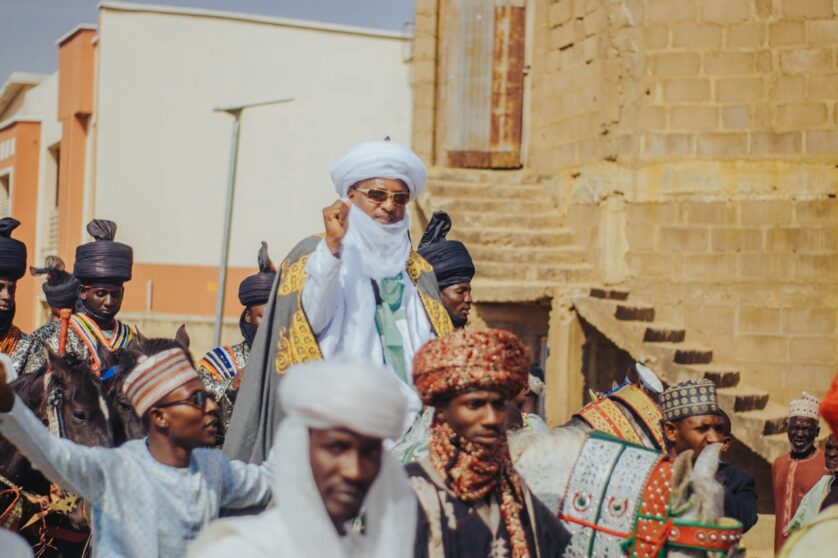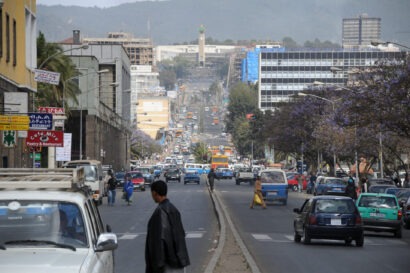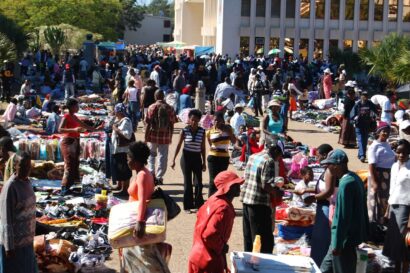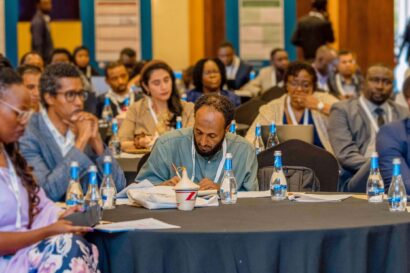In early October, I was in Cape Town for the 10th ATAF Annual Congress, where I presented my paper on accountability mechanism of informal taxation, a study funded by ICTD. During the discussions, a statement made by a traditional leader during my fieldwork kept echoing in my mind. The Sarki Agwan Juma had said “Look at the gates you passed on your way here. We put those gates up ourselves. We levy ourselves. That is how we pay for vigilantes to protect us.”
His words capture a reality shared by millions across Nigeria and other developing countries: where the state falls short, communities step in. Informal tax has become a lifeline for basic services like electricity, roads, water, and security.
Yet these community-driven systems raise an important question: How do communities hold leaders accountable when taxes are collected outside the state and what does it mean for tax governance?
Evidence from Kaduna State, Nigeria, reveals surprising contrasts. In Zaria, trust thrives without records. In Chikun, records abound but mistrust lingers. The findings challenge conventional assumptions about what real accountability looks like.
Why informal tax matters
Since Nigeria’s restoration of democracy in 1999, local governments have struggled with weak fiscal autonomy. Although constitutional reforms promise decentralisation, most tax powers and revenues remain concentrated at the state and federal levels. This leaves local councils underfunded and unable to meet growing demands for infrastructure and services, particularly in rural and semi-urban areas.
In this vacuum, traditional institutions – chiefs and emirs – along with market unions, youth groups, and landlords’ associations, have stepped in to mobilise resources. These payments, though non-statutory, carry strong social obligations. Households contribute levies for electricity repairs, shop owners pay presumptive taxes, and market users pay fees for borehole water.
In Kaduna, these arrangements are not peripheral but central to everyday governance.
Zaria and Chikun: contrasting local contexts
The study focused on two local government areas with distinct governance systems: Zaria and Chikun.
In Zaria – Northern Kaduna, predominantly Muslim – governance is hierarchal and revolves around the Emirate system where traditional leaders wield significant authority and Islamic principles strongly influence public life.
Conversely, in Chikun – Southern Kaduna, predominantly Christian – chiefdoms operate through consultative and deliberative processes. Chiefs do not double as religious leaders, and community decision-making tends to be more participatory.
Both regions rely heavily on informal tax to finance community development, yet their accountability systems differ in important ways. Drawing on 103 interviews with traditional leaders, elites, and sub-community heads, the research, explores how transparency, answerability and responsibility – the three pillars of accountability – manifest outside the state.
While formal accountability mechanisms rely on laws and institutions, informal systems draw on social-cultural norms, longstanding traditional legacies, and religious doctrines.
Key findings
1. The various forms of informal tax
Across both Zaria and Chikun, three main forms of informal tax dominate: levies, presumptive taxes, and user fees.
- Levies are paid by households and community members for general community projects.
- In Chikun, presumptive tax-like payments are paid by shop owners based on estimated profits and shop size while user fees are paid to access market boreholes.
While these forms are broadly similar, their administration reflects diverging governance structures. In Zaria, Sarkis administer levies and wealthy elites finance projects, reshaping power relations within the Emirate. In contrast, the Chiefs in Chikun work with committees of youth, landlords, and women to mobilise revenue through informal tax. This dynamic reflects an implicit social contract that shapes accountability mechanisms.
2. Varying levels of transparency, answerability and responsiveness
The two areas show contrasting patterns of trust and transparency:
In Zaria, decision-making is driven by traditional leaders and the elite, but Islamic ethics reinforce trust despite limited community participation. Projects are implemented swiftly, strengthening perceptions of responsiveness and honesty.
Conversely, in Chikun, transparency and inclusivity stem from mistrust; strong record-keeping and public deliberations reflect efforts to rebuild trust after past cases of misappropriation and perception of embezzlement. Furthermore, this inclusiveness fosters collective ownership but often delays implementations.
Accountability is not a one-size-fits all formula
The Kaduna study challenges the assumption that participatory systems are inherently more accountable than hierarchical ones. Accountability, it shows, is hybrid and context-specific, a negotiation between norms, traditions, and expectations.
Implications for policy
These findings offer important lessons for policy makers, development partners, and researchers interested in tax governance.
- In contexts like Zaria, where religious and customary norms enhance trust, policy makers and formal institutions can build on this legitimacy to strengthen tax compliance and service delivery.
- In Chikun, where mistrust drives demand for transparency, governments and NGOs should support participatory platforms that balance deliberation with efficiency.
- Formal tax authorities should engage – not ignore – informal taxation. Collaborating with traditional leaders and community groups can enhance accountability and ensure equitable service delivery and tax compliance.
- Policymakers should appreciate that transparency, answerability, and responsiveness vary across cultural and religious contexts. Developing metrics that capture this diversity will improve tax policy design.
Rethinking accountability beyond the state
Community-led financing systems reveal both the strengths and limitations of informal accountability. By examining these variations, we gain a deeper understanding of how citizens and leaders negotiate responsibilities beyond the formal state. Accountability is not only about procedures and record; it is also about aligning governance practices with local expectations of fairness, trust, and responsiveness.
As governments and development partners seek to expand domestic revenue mobilisation, recognising and engaging with informal taxation and the accountability systems that sustain it will be critical. Kaduna’s evidence offers valuable lessons not only for Nigeria but for many countries where informal taxation remains the foundation of community development.



